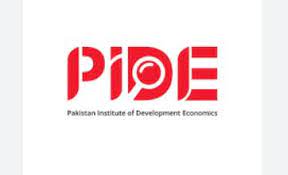F.P. Report
PESHAWAR: A delegation of the Pakistan Institute of Development Economics (PIDE) headed by Dr. Nadeem Ul Haque, Vice-Chancellor of PIDE called upon Federal Minister for Commerce and Industries and Production Dr. Gohar Ejaz.
The PIDE delegation presented Research Reports on the energy sector, the state of commerce in Pakistan, the state of the engineering industry, SLUDGE and the urgent need for deregulation in the country. The meeting was also attended by Special Secretary Ms. Sarah Saeed, Mr. Asad Rehman Gillani and Mr. Shahid Abdullah of the Sapphire Group, said in a press release issued here on Monday.
The Minister appreciated the efforts put in by PIDE for evidence-based policymaking and the revival of the economy. He stressed the need for increasing investment and exports as a top priority for the coming years. Without a stable macroeconomic environment, which includes low inflation, low interest rate, and stable exchange rate, all investors are likely to regard Pakistan as too risky. Sadly, in Pakistan the business community is stigmatized while in other countries entrepreneurs are lauded for creating economic activity.
This mindset has to change. We must celebrate success. Dr. Nadeem Ul Haque pointed out that PIDE agreed with this assessment of the ministry. PIDE’s research agenda also shows that the topmost priority for the next decade must be the sharp increase of investments and exports. And of course, this can only happen if entrepreneurship and business success is celebrated. PIDE is also determined to find solutions for Pakistan’s economic woes and has suggested several deep reforms for the promotion of markets such as real estate market and commodity markets, ease of transactions and business growth.
The Minister concluded by noting that PIDE, being a premier public sector think tank, must work closely with the Ministry of Commerce and Industry on this very important agenda of an investment and export emergency. It was agreed that PIDE will work very closely with all industry experts to develop deep reform ideas and research for the ministry. He noted that it was important to embed PIDE research in his policy agenda. For this he suggested that he would have such meetings on a regular basis so that PIDE research can receive guidance on commerce needs.







